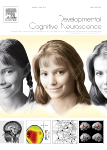 Here at Retraction Watch, we like to dig for what lies behind sometimes opaque retraction notices. But today, thanks to Neil Martin, we have a glimpse into something a bit different: The back-and-forth between an author and his editor.
Here at Retraction Watch, we like to dig for what lies behind sometimes opaque retraction notices. But today, thanks to Neil Martin, we have a glimpse into something a bit different: The back-and-forth between an author and his editor.
In Developmental Cognitive Neuroscience, Peter Reiner, of the University of British Columbia, wrote a comment on “Can transcranial electrical stimulation improve learning difficulties in atypical brain development? A future possibility for cognitive training,” by Beatrix Krause and Roi Cohen Kadosh.(Recent related work by Cohen Kadosh’s group has earned some media attention.
The comment is pretty straightforward, except for what’s listed as the abstract:
I will use the space for the abstract to explain one issue with the references. There are two papers referred to as Fitz and Reiner (in press). I didn’t know how to handle this, so I called them Fitz and Reiner (in press-a and in press-b). The issue should resolve nicely before publication, as one of the papers in Journal of Medical Ethics should be published in the next couple of weeks. Otherwise, I am not sure how else to distinguish the two. Sorry.
Then, at the top of the HTML version of the full paper:
[My preferred title would be “If ever there was reason for prudence…”, but I am have not seen ‘real titles’ in other commentaries in the journal]
Just for the record, “If ever there was reason for prudence…” is a bit more likely to get readers hooked than is “Comment on ‘Can transcranial electrical stimulation improve learning difficulties in atypical brain development? A future possibility for cognitive training’ by Krause and Cohen Kadosh.” Just saying.
These are almost certainly notes from Reiner to his editors that showed up because of some kind of technical glitch. So we apologize to him, and to Elsevier, for a joke at their expense — especially when it’s not even actually about a retraction.
But hey, if you can’t laugh at a harmless error, what can you laugh at?
Update, 3:30 p.m. Eastern, 5/30/13: One of the journal’s editors, Sarah-Jayne Blakemore, says on Twitter that she’s trying to get this fixed.